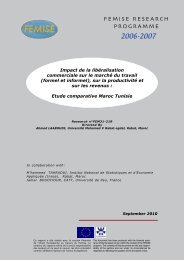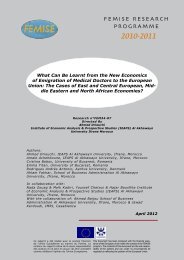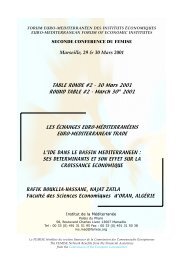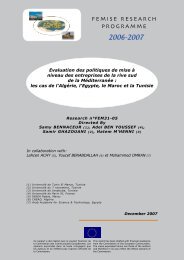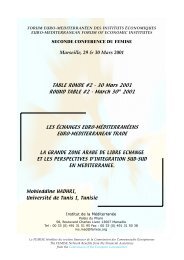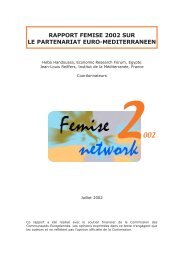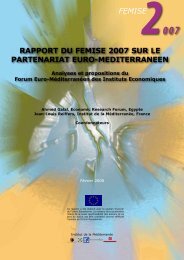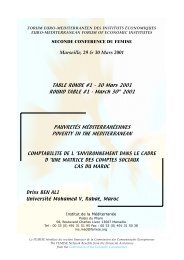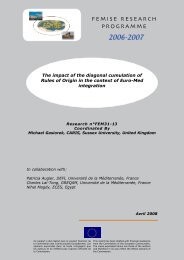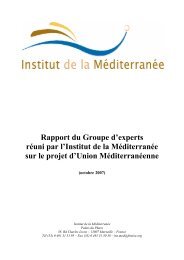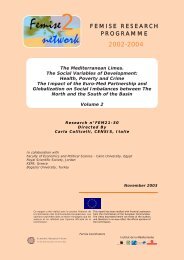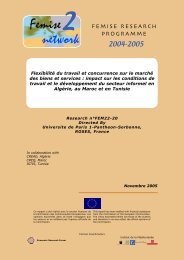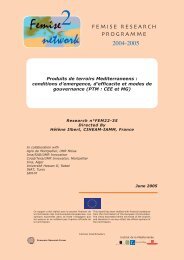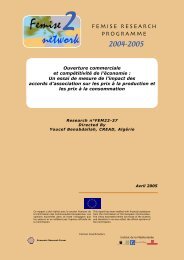PDF, GB, 139 p., 796 Ko - Femise
PDF, GB, 139 p., 796 Ko - Femise
PDF, GB, 139 p., 796 Ko - Femise
Create successful ePaper yourself
Turn your PDF publications into a flip-book with our unique Google optimized e-Paper software.
The main goal of the project was to analyze the causes of corruption and ways of<br />
improvement. Several hypotheses were tested here. Some of them appear quite general,<br />
e.g. that (i) corruption is lower in higher economically developed countries and that (ii)<br />
stable democratic institutions and corruption are expected to be positively correlated.<br />
Two other hypotheses were more important for practical reasons for MPCs; i.e. that (iii)<br />
corruption is associated with the number of bureaucratic procedures and (iv) that it rises<br />
with bureaucratic delays.<br />
The testing started with the two exogenous variables explaining corruption: the<br />
logarithm of GDP per capita and the level of democracy proxied by the political rights<br />
variable. This pair of control variables proved to have correct positive sign and be<br />
statistically significant. Hence, the first two hypotheses have been positively verified.<br />
Then, we dealt with licenses variables. This topic tracks the procedures, time, and costs<br />
to build a warehouse, including obtaining necessary licenses and permits, completing<br />
required notifications and inspections, and obtaining utility connections. As expected, it<br />
came out in the investigation that longer bureaucratic delays and higher number of<br />
procedures were a significant factor in the prevalence of corruption.<br />
On the other hand, official costs of dealing with licenses came out significant only in<br />
some of the specifications, with low levels of confidence. The positive signs in all<br />
specifications indicate that official costs of bureaucratic procedures do not play a major<br />
role in corruption, since businesses prefer predictable official payments to unpredictable<br />
informal ones so they substitute one by the other. This means that official incentive<br />
payments may be one way to achieve a less corrupt and speedier bureaucracy.<br />
To accomplish a successful reduction in the level of corruption, liberalization and<br />
improvements in working of the bureaucracy will be required in most MPCs.<br />
Decreasing the number of procedures, streamlining of the bureaucracy and other ways<br />
to limit time spent waiting for its decisions may significantly reduce corruption, even if<br />
it occurs at a higher official cost of conducting administrative procedures. Given the<br />
long history of corruption in the region, the proposed regulatory measures would<br />
probably not be sufficient to eradicate it to the level of new members of the European<br />
18



